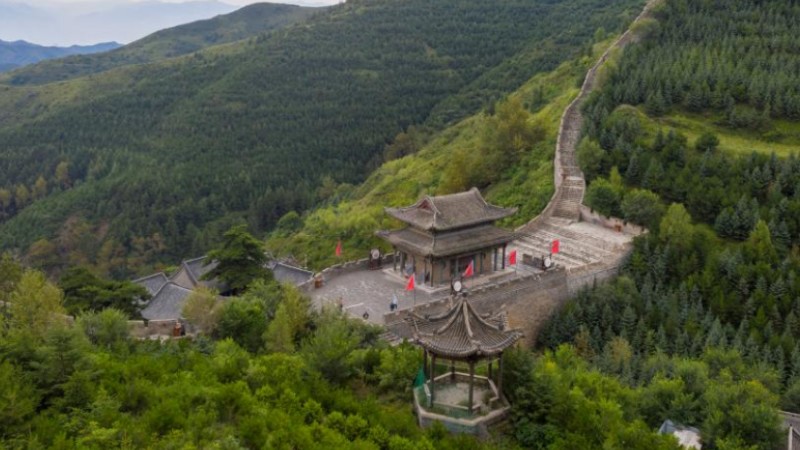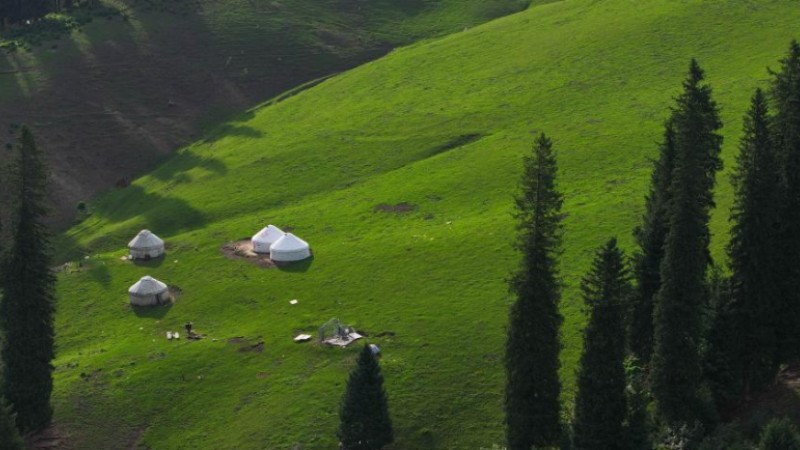Why Japan's nuclear-contaminated wastewater dumping sparks outcry in Asia-Pacific
HONG KONG, Aug. 31 (Xinhua) -- Ignoring the appeals of domestic fishermen, neighboring countries and worldwide environmental experts, Japan started releasing the Fukushima nuclear-contaminated water into the ocean on Aug. 24, sparking protests, massive rallies and outcry from Asia-Pacific countries.
The Fukushima nuclear accident is one of the world's most serious nuclear disasters to date. Hit by a massive earthquake and an ensuing tsunami in March 2011, the Fukushima nuclear power plant suffered core meltdowns and generated a massive amount of contaminated water which is known to have more than 60 radioactive elements.
Experts say Japan's ill-advised decision violates the spirit of the UN Decade of Ocean Science for Sustainable Development (2021-2030) and the recently passed UN High Seas Treaty as well as the rights of indigenous Pacific communities.
IMPORTS BAN
Japan, by starting the ocean discharge of Fukushima nuclear-contaminated wastewater despite strong doubts and objections at home and abroad, is bringing great risks, hidden dangers, and unpredictable harm to the global marine environment as well as mankind's health and safety, said Chinese Ambassador to Japan Wu Jianghao on Monday during his meeting with Japanese Vice Foreign Minister Masataka Okano.
China decided to suspend the imports of all aquatic products originating from Japan starting from Aug. 24 to prevent risks from Japan's discharge of nuclear-contaminated wastewater, according to a statement by China's General Administration of Customs.
The department said it had decided to take emergency measures to comprehensively prevent radioactive pollution risks caused by Japan's discharge of the contaminated wastewater, protect the health of Chinese consumers and ensure the safety of food imports.
In South Korea, thousands of fishermen, activists and politicians staged a protest in central Seoul on Saturday. They shouted "immediately stop dumping radioactive wastewater into the ocean" and "Japan must store nuclear-contaminated wastewater on its soil," urging the South Korean government to file a lawsuit with the International Tribunal for the Law of the Sea against the Japanese government.
Seoul decided to keep the ban on the import of all fishery products from eight Japanese prefectures, including Fukushima, and 27 agricultural products from 15 other prefectures, while all food imports from other Japanese regions have been thoroughly tested for radioactivity.
Russia's quarantine agency tightened quality control on seafood imported from Japan after the start of discharging nuclear-contaminated wastewater from the Fukushima Daiichi nuclear power plant into the Pacific Ocean.
Food products from Japan deemed to be high-risk would be subject to Level 4 (surveillance) inspection for radioactive materials, the Malaysian Health Ministry said in a statement.
CONCERN OF PACIFIC ISLANDERS
Hundreds of Fijians Friday marched in the capital city of Suva, raising their objection against Japan's wrongdoing. The protesters, led by the Fijian non-government organization Coalition on Human Rights, called for international actions to halt Tokyo's irresponsible move to protect the ocean and future generations.
Prime Minister of the Solomon Islands Manasseh Sogavare has delivered a strong statement against Japan's decision to release the water into the ocean which has an impact on the people, the ocean, the economy and the livelihood.
Vanuatu's Foreign Minister Matai Seremaiah said Japan's decision to start the ocean discharge of nuclear-contaminated wastewater needed robust actions, urging polluters to "seriously consider other options."
LACK OF SCIENTIFIC EVIDENCE
There is a lack of adequate and accurate scientific data supporting Japan's assertion of safety. Furthermore, there is an abundance of data demonstrating serious concerns about releasing radioactively contaminated water, the National Association of Marine Laboratories (NAML), a U.S. organization of more than 100 member laboratories, said in a position paper in December 2022.
"The supporting data provided by the Tokyo Electric Power Company and the Japanese Government are insufficient and, in some cases, incorrect, with flaws in sampling protocols, statistical design, sample analyses, and assumptions, which in turn lead to flaws in the conclusion of safety and prevent a more thorough evaluation of better alternative approaches to disposal," said the NAML.
Tritium, which the Japanese government planned to dump from its crippled Fukushima Daiichi nuclear power plant into the Pacific Ocean, will harm human beings' inside bodies as internal exposure can be more dangerous than external exposure, said Timothy Mousseau, professor of biological sciences at the University of South Carolina.
"When tritium gets inside the body, it's at least as dangerous as any of the other radionuclides. And in some cases, it's more than double as dangerous in terms of the effects of the radiation on the genetic material, on the proteins," the renowned scientist told a press conference in Seoul.
NOT TRUSTWORTHY
The Japanese government decided in April 2021 to release more than one million tons of nuclear-contaminated wastewater into the Pacific Ocean this spring.
Earlier this year, it unilaterally announced that it would start discharging the tainted wastewater in spring or summer.
Asked whether they support the government's water discharge plan, 41 percent of Japanese respondents said no, according to a poll done by the Japanese newspaper Asahi Shimbun in August.
The increasing volumes and pending release of the contaminated water demonstrate the failure of the decommissioning plan for the Fukushima Daiichi. The contaminated water will continue to accumulate for many years without effective measures to stop it, said the NAML.
As of June 8, 2023, there were 1,335,381 cubic meters of radioactive wastewater stored in tanks, but due to the failure of the ALPS (Advanced Liquid Processing System) processing technology, approximately 70 percent of this water will have to be processed again, according to the organization.
"We've seen an inadequate radiological, ecological impact assessment that makes us very concerned that Japan would not only be unable to detect what's getting into the water, sediment and organisms, but if it does, there is no recourse to remove it ... there's no way to get the genie back in the bottle," marine biologist Robert Richmond, a professor with the University of Hawaii, told the BBC's Newsday program.
The decision raises questions about the genuineness of Japan's commitment to its Pacific neighbors, Transform Aqorau, vice chancellor of the Solomon Islands National University, wrote in an article published by the Pacific Islands News Association.
It is not just an "environment concern" but also "a dent in the armor of trust and camaraderie," he wrote, noting that the repercussions will likely echo for many years to come.
Photos
Related Stories
- Japan's agriculture minister bashed by PM for calling Fukushima wastewater "contaminated"
- Board Director for Fiji Broadcasting Corporation slams Japan's dumping of nuke wastewater
- Tokyo can't pass the buck for its dirty deed: China Daily editorial
- S. Korean opposition party rallies against Japan's nuke wastewater dumping
- US endorsement cannot justify nuclear-contaminated water discharge: Foreign Ministry
Copyright © 2023 People's Daily Online. All Rights Reserved.









